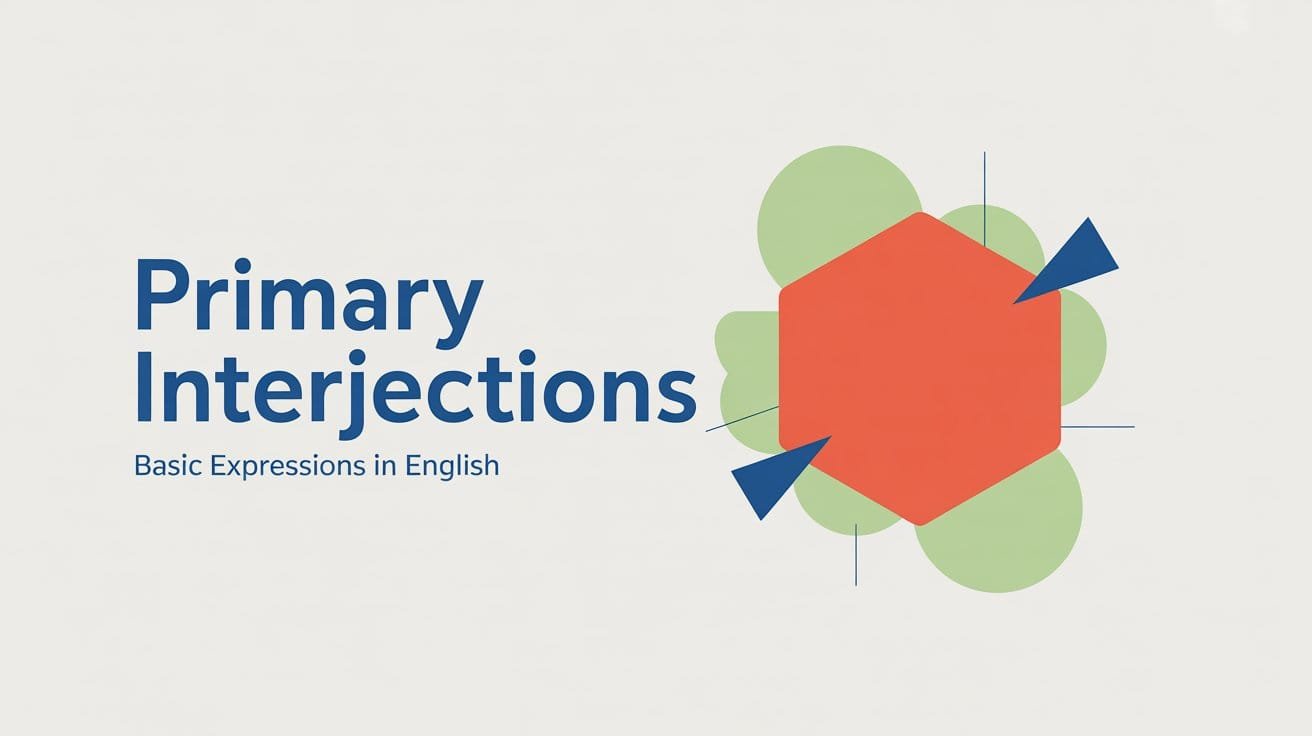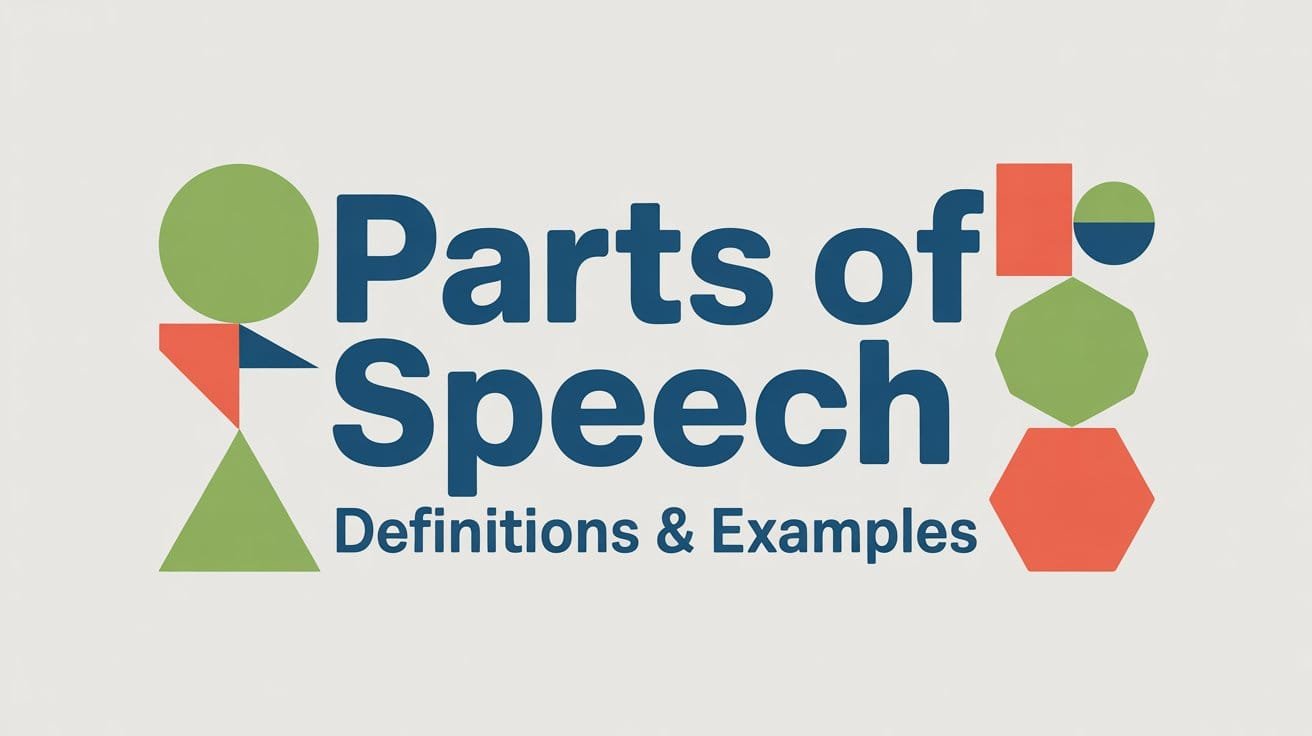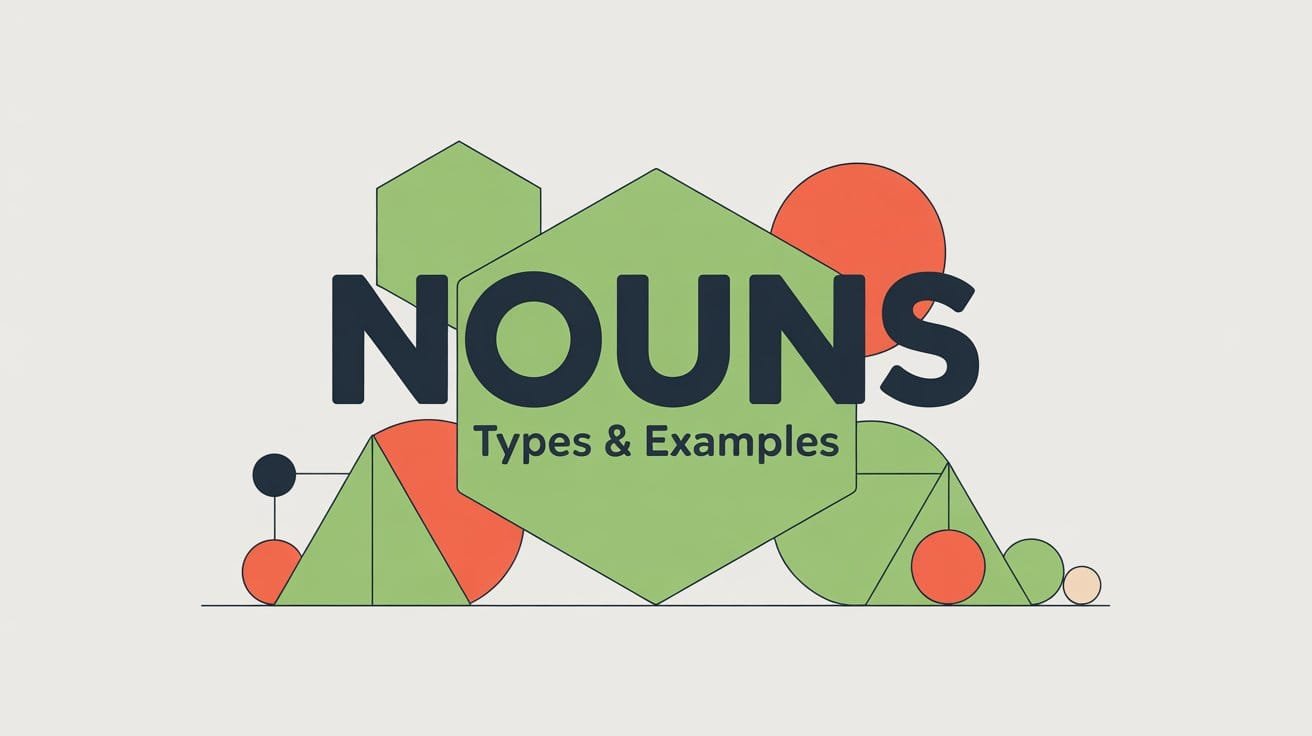Have you ever reacted with a quick “Wow!” or “Ouch!” without thinking? Those simple sounds, known as primary interjections, are more than random noises.
They are powerful ways we express emotions instantly. In casual conversations and storytelling, primary interjections help convey feelings with just a word or two.
What Are Primary Interjections?
Primary interjections are short, expressive words that convey immediate emotional reactions. Unlike other types of words, they serve only one function: to show how we feel in the moment. These interjections, such as “Ouch!” or “Wow!”, are natural responses, often uttered before we can think or plan our words. They aren’t learned from textbooks but arise naturally in conversation, offering a direct way to express surprise, pain, joy, and other feelings.
Why Are They Called “Primary”?
Primary interjections are called “primary” because they are the most basic and instinctive emotional expressions. These interjections are the first sounds we make as babies, like “Ooh!” or “Ah!” when something catches our attention. These sounds are so basic and natural that they’re often similar across different languages. They reflect the raw, unfiltered nature of human emotion.
List of Common Primary Interjections in English
| Interjection | Emotion | Interjection | Emotion |
| Wow! | Surprise or amazement | Phew! | Relief after tension or danger |
| Oh! | Surprise, realization, or disappointment | Boo! | Surprise or playful scare |
| Ah! | Understanding, relief, or satisfaction | Aww! | Sympathy, affection, or cuteness |
| Oops! | Acknowledging a mistake or accident | Tsk! | Disapproval or impatience |
| Hey! | Calling attention or greeting | Gah! | Frustration or annoyance |
| Ugh! | Frustration or disgust | Hooray! | Joy or celebration |
| Yay! | Joy or excitement | Blah! | Boredom or indifference |
| Aha! | Discovery or sudden realization | Shh! | Request for silence |
| Ouch! | Pain or discomfort | Pfft! | Disdain, disbelief, or dismissal |
| Yikes! | Alarm, fear, or surprise | Hmph! | Disapproval or annoyance |
| Ew! | Disgust or distaste | Zing! | A sharp or witty remark |
| Whoa! | Astonishment or surprise | Eureka! | Sudden discovery or realization |
| Ooh! | Pleasure, admiration, or surprise | Oof! | Physical discomfort or reaction to impact |
Primary Interjections Uses
Here are some situations where we use primary interjections:
Pain and Discomfort
When we feel pain, we often say words like “Ouch!” or “Ow!” These interjections are automatic reactions to physical discomfort. Sometimes, we may stub our toe, touch something too hot, or bump into something hard. In these situations, primary interjections immediately show how much pain we have. They help others understand our emotions without needing a detailed explanation.
Surprise and Amazement
When something surprises us, we often say “Wow!” or “Oh!” These words are quick expressions of our shock or excitement. We may be amazed by something beautiful, or surprised by unexpected news, interjections like these show our immediate emotional response. They are often a reflection of our genuine wonder and disbelief.
Mistakes and Accidents
“Oops!” is a common interjection used when we make a mistake or have an accident. It’s a simple, informal way of acknowledging that something has gone wrong. Spilling a drink, dropping your phone, or making an embarrassing mistake, this interjection provides a quick way to admit the error without saying much.
Disgust and Disapproval
Words like “Ew!” or “Ugh!” are often used when we encounter something unpleasant, gross, or upsetting. These interjections show our immediate dislike or discomfort, like when we smell something bad or experience something that makes us feel uneasy. They help others understand that something isn’t just neutral, but something we want to avoid.
Primary Interjections in Real Life
Primary interjections are often used in simple, everyday moments. For example, when you can’t find your phone in your pocket, you might say “Oh!” in surprise. This is a quick reaction to something unexpected.
More Examples of Primary Interjections in Real Life
- You find a surprise birthday gift. “Wow!” you say, amazed by the thoughtful gesture.
- You taste something extremely spicy. “Ew!” you might say, reacting to the heat.
- You watch your favorite team score a last-minute goal. “Yes!” you shout in excitement.
- You hear an unexpected loud noise. “What?!” is your instant reaction.
- You accidentally knock over a glass of water. “Oops!” is the first thing you say.
Primary Interjections in Writing
Primary interjections can add emotion and authenticity to your writing, just as in speech. When used in dialogue or informal writing, they help convey characters’ immediate reactions, making their feelings more relatable and real.
In writing, primary interjections often appear with exclamation marks to emphasize the emotion behind the words. As Lynne Truss explains in Eats, Shoots & Leaves, punctuation amplifies their impact. For example, an exclamation mark after “Wow!” conveys amazement more powerfully than the word alone. Similarly, “Oops!” with a period feels flat, while “Oops!” with an exclamation mark adds urgency or humor.
Wow! That’s incredible!” – Shows excitement and amazement.
“Oops! I didn’t mean to do that.” – A quick response to an error or mistake that brings humor or humility to the situation.
“Ugh, I can’t believe this is happening.” – Expressing frustration or disappointment.
When to Use Primary Interjections
Primary interjections work best in informal and casual communication. They are great for moments where emotions should be expressed quickly and clearly without a full explanation.
Casual Conversations
In everyday chats, primary interjections add energy and emotion. These interjections make conversations with friends or family feel more natural and lively. For example, “Wow, that’s awesome!” or “Ugh, this is so frustrating!” are perfect for these informal settings.
Text Messages to Friends
Text messages are often short and quick, and interjections help convey emotions in a flash. Instead of typing a long explanation, you can just say “Yay!” or “Oops!” to express your feelings instantly. These simple words make the conversation feel more personal and immediate.
Informal Emails
Interjections help add warmth or excitement to casual emails. If you’re emailing a friend or colleague in an informal context, starting with “Oh, that’s great news!” or “Ew, that’s terrible!” can set the tone for the rest of the message.
Story Writing
In stories, primary interjections bring characters to life. A character might shout “Wow!” in surprise or whisper “Shh!” in a tense moment. These reactions help readers connect with the characters’ feelings without long explanations, and make the writing more dynamic and emotional.
Comic Books and Casual Writing
In comics, primary interjections are often used in speech bubbles. They help show action, emotion, and even humor in a quick and easy-to-understand way. Words like “Boom!” or “Yikes!” are common in this format because they instantly communicate a reaction or an event.
When Not to Use Primary Interjections
While primary interjections are great for casual contexts, they’re less appropriate in formal settings where clarity and professionalism are key.
Formal Business Emails
In formal emails, especially in the workplace, it’s best to avoid using primary interjections. Instead of “Oops! I forgot to send the report,” a more professional tone like “I apologize for the oversight” would be more suitable.
Academic Writing
In academic writing, primary interjections are not used. These writings focus on clear and precise language, and interjections can seem out of place. For example, instead of writing “Wow! The results are surprising,” it’s better to state “The results were unexpected and noteworthy.”
Professional Presentations
In formal presentations, interjections may come across as too informal. Professionalism is key, so instead of “Oh! That’s amazing!” it’s more appropriate to say “This finding is significant.” A focused, clear statement conveys your message more effectively.
Formal Speeches
Interjections are also out of place during formal speeches. These speeches are often scripted and structured to convey important information or make a serious point. For example, instead of saying “Ugh, this is tough,” a more fitting response would be “This is a challenging task that requires careful attention.”
Final Thought
Primary interjections seem like small, simple words, but they make communication natural. These basic expressions are like punctuation marks in speech, adding life to conversations and writing. Using them at the right time makes your English sound more expressive, relatable, and true to real-life reactions. So, try incorporating them into your conversations and writing to bring your words to life!



